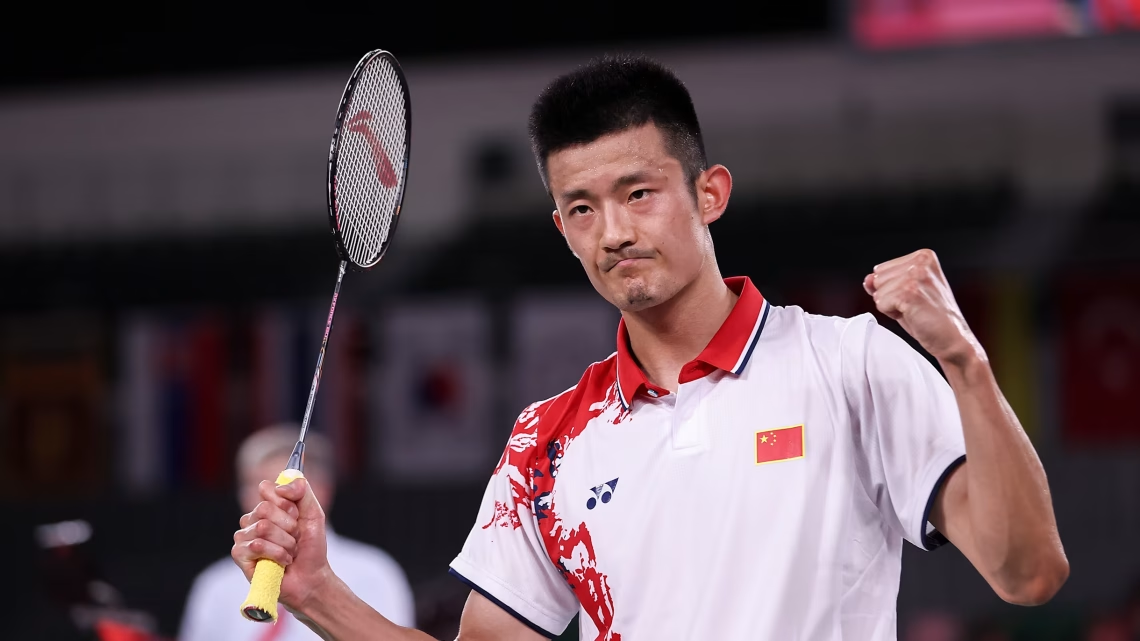Chen Long at a Glance
- Net Worth: $8 Million
- Profession: Professional Badminton Player (Retired)
- Nationality: Chinese
- Birthdate: January 18, 1989
- Birthplace: Shashi District, Jingzhou, Hubei, China
- Height: 1.87 m (6 ft 2 in)
Table of Contents
What is Chen Long’s Net Worth?
Chen Long has a net worth of $8 million. His fortune stems primarily from a decade-long dominance in international badminton, where he consistently ranked among the world’s top earners in prize money. Unlike athletes in high-salary team sports, his wealth accumulation relied heavily on tournament performance and commercial partnerships.
While his direct career prize money totals approximately $1.35 million, the majority of his net worth comes from corporate sponsorships and government incentives associated with his Olympic victories. As a top-tier Chinese athlete, he benefited from the state-sponsored sports system, which provides financial security, bonuses, and post-retirement opportunities, though the most significant financial gains came from his association with major sports brands.
Li-Ning Partnership
The most substantial contributor to his financial standing is his long-term endorsement deal with Li-Ning. As one of the faces of the Chinese sportswear giant, he commanded a multi-million dollar contract that far exceeded his on-court earnings. This partnership involved signature equipment lines, including rackets and footwear, which capitalized on his status as an Olympic champion. Even after the Chinese national team switched its equipment sponsor to Yonex, he maintained a personal connection to Li-Ning for significant periods, underscoring his individual commercial value.
Tournament Earnings
Throughout his career, he was a fixture in the late stages of BWF Super Series and World Tour events. His prize money earnings of over $1.35 million place him in the upper echelon of the sport’s all-time earners. Notable paydays included victories at the BWF World Superseries Finals and the All England Open. In badminton, where prize pools are smaller than in tennis or golf, consistently reaching finals—as he did between 2014 and 2019—ensured a steady stream of high-level income.
Olympic Rewards
His victory at the 2016 Rio Olympics provided a direct financial boost. The Chinese government and local provincial authorities award significant cash bonuses to gold medalists. Beyond the federal reward, which is often around $30,000 to $50,000, athletes typically receive substantial gifts from local enterprises and real estate developers. These performance incentives significantly padded his assets following his gold medal win in Rio and his silver medal performance at the Tokyo 2020 Olympics.
Early Life
Born in the Shashi District of Jingzhou, Hubei Province, he entered the world of sport at a young age. His physical attributes—specifically his height and reach—were identified early by talent scouts. He joined the Xiamen team before being selected for the national youth team in 2006. His rapid ascent through the junior ranks culminated in a World Junior Championship title in 2007, marking him as the heir apparent to China’s badminton dynasty. This rigorous, state-supported upbringing laid the foundation for his professional discipline and tactical style.
Career
Chen Long’s professional trajectory is defined by his ability to perform on the sport’s biggest stages. He emerged from the shadow of Lin Dan to carve out his own legacy, reaching the world number one ranking in 2014. That same year, he secured his first World Championship title in Copenhagen, defeating Lee Chong Wei in the final. He successfully defended his title in 2015 in Jakarta, solidifying his dominance.
The pinnacle of his career arrived at the 2016 Summer Olympics in Rio de Janeiro. In the men’s singles final, he defeated Malaysia’s Lee Chong Wei in straight sets to claim the gold medal. This victory completed his collection of major titles and silenced critics who questioned his ability to deliver under Olympic pressure. He remained a formidable competitor well into his 30s, capturing a silver medal at the Tokyo 2020 Olympics before officially retiring from international competition in 2023.
Personal Life
He is married to Wang Shixian, a former world number one women’s singles player. The couple, often regarded as a power duo in the badminton world, married in 2017 after a long-term relationship. They welcomed their first son, nicknamed “Little Coffee,” in June 2019. Since retiring, he has dedicated more time to his family and has participated in various promotional activities to develop badminton at the grassroots level in China.






